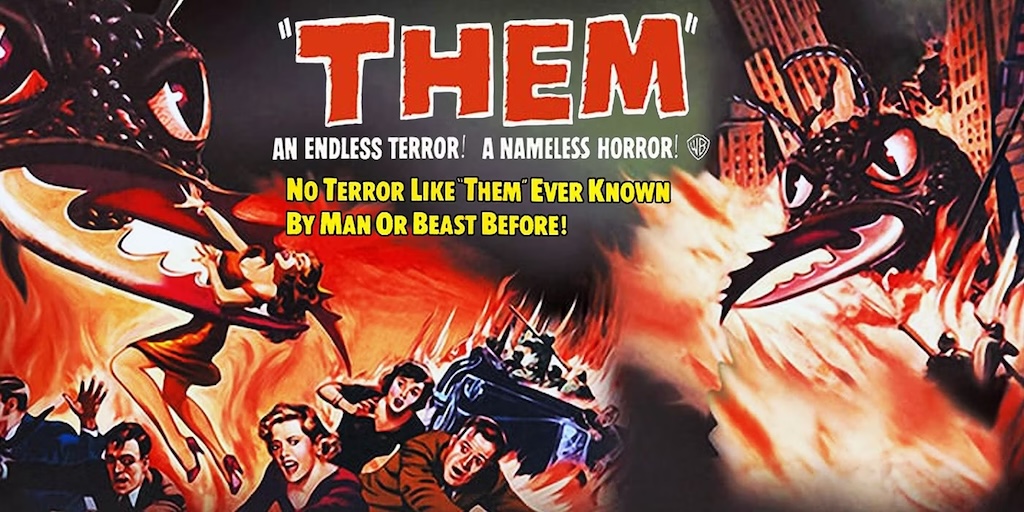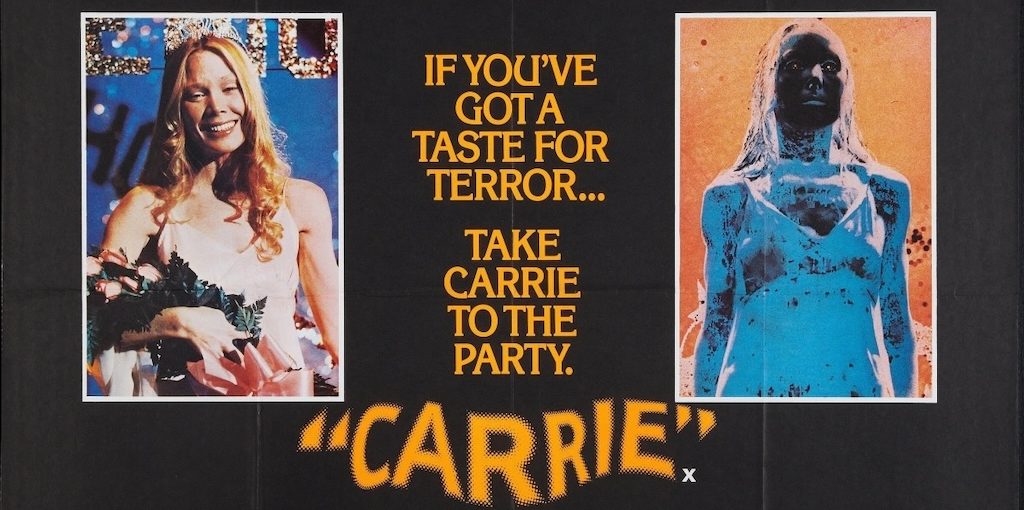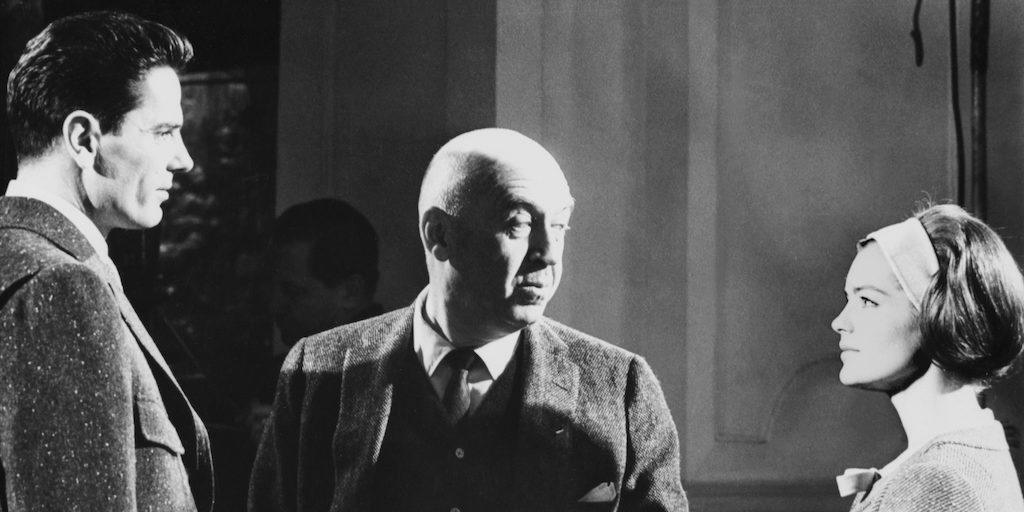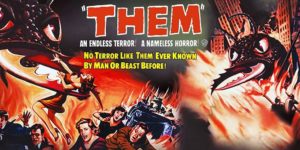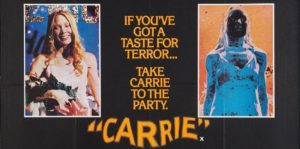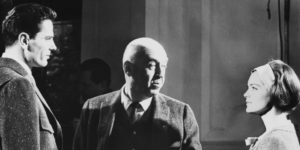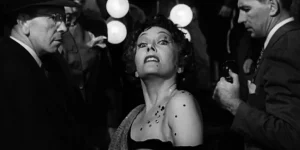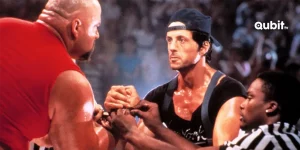THE MONSTER IS US
The figure of the unknown, the abnormal, the other; extremely peculiar concepts that serve to extrapolate the fears of our society. For horror to exist, a dark force must always be present, one that initially cannot be explained, one that we are unable to understand, and that can break with the established norms to which we are accustomed. Horror functions as the manifestation of the repressed, of that which we do not want to see the light of day. George A. Romero used the genre in Night of the Living Dead to represent the horror of racial segregation with the excuse of a zombie invasion. In Psycho, Alfred Hitchcock characterized Norman Bates’s monstrous figure of the “repressed self” through a split personality. However, in Weapons, horror is diluted, or rather reformulated, which complicates its categorization within the genre.
Zach Cregger’s film presents in its first minutes, through surveillance cameras accompanied by a voiceover, how, on a single night, 17 children from the same classroom left their home for no apparent reason and disappeared into the darkness, never to be seen again. In its first act, the film seeks to expose the inadequacy and fragility of a social system in which if one domino falls, it condemns the others to follow its same fate. Unlike his previous film, Barbarian, where the terror was within, deep within, in the dungeon-like basement, Cregger places the figure of the unknown outside, in the unresolved space to which Justin Grandy’s students were summoned.
In terms of structure, the script divides its narrative into distinct points of view, and through certain connecting events that link the various pieces, the mystery begins to unravel. Scary scenes rarely appear, and when they do, they make the mistake of falling into the now-repeated and hackneyed jump scares. Unlike Barbarian, where the fear wasn’t in the scare itself, but in the anticipation of it, in plunging into darkness in search of a way out, in not knowing what to expect, and in the endless possibilities that could arise from the unknown. Considering Weapons as a horror film would be a mistake; if anything, it’s a mystery film with horror undertones and certain touches of gore in some specific scenes. The distribution of knowledge, vital for a film of this nature, puts us on the same level as the characters. We are as ignorant as they are of the mystery we must decipher and understand as little as they do of the threat we face. From this bifurcation of points of view, we explore the different institutions or sectors of the community affected by the tragedy. We witness how a father (Josh Brolin) tirelessly searches for his son, how the homeroom teacher (Julia Garner) deals with the accusations against him, or how a police officer (Alden Ehrenreich) finds himself in the middle of this investigation.
Aesthetically, the film maintains a dialogue in its first half with David Fincher’s Gone Girl. There are scenes typical of the mystery genre, such as the one in which the entire community gathers and the authorities reassure us that they are doing their job.
At the same time, the story and the way it is narrated indirectly resonates with Stephen King’s literature, in the way small communities are affected by something much larger than themselves, something they don’t understand but that unleashes their greatest fears. Throughout the story, we see how, little by little, the institutions prefabricated to sustain us, such as the police and education, are disrupted and become “weapons” at the disposal of a higher entity. This entity, represented as the outlaw otherness that comes to the town and revolutionizes it, becomes a central part of the film’s second half.
Everything built in the first half of the film gradually transforms from “the terrifying,” mass hysteria, and urban disturbance into a story of mysticism and witchcraft. It echoes the legend of the Pied Piper of Hamelin or Robert Wiene’s The Cabinet of Dr. Caligari, which serves as a pretext to explain the mystery of the first half. By this point, the horror genre is already weakened. Although it maintains elements of its own semantics throughout the film, it is necessary for it to evolve (for better or worse) to reach the final destination proposed by the script. At the same time, and intelligently, the film begins to move toward dark humor, sometimes mixed with gore and other times simply serving as comic relief, which continue the tone proposed for the second half.
Weapons is a film that doesn’t have a classic monster; if anything, it’s us who are monstrous, and how we can be manipulated by others. Otherness becomes familiar because it becomes recognizable but at the same time soulless and stripped of all reasoning.
In terms of staging, Cregger initially seeks to maintain distance from his characters; we follow them from behind, seeing their backs as if we were spying on them. One begins to trust them as we gradually get to know them. As for the way the children’s disappearance is filmed, the director seems to opt for a style very reminiscent of a scene from Hitchcock’s Rebecca in which Maxim recounts how he killed his wife. This is the moment in Weapons where the voiceover of one of the children narrates what happened that night. The camera pans over an empty house with the door open to the street and cuts to total darkness. This darkness leaves what happened that night to the viewer’s imagination. Explicit images of what happened immediately afterward are also shown, the most interesting being those captured by the homes’ surveillance cameras.
In short, Weapons is a film that, while it doesn’t quite live up to its promise, is quite satisfying to watch. At times, it manages to generate fear and at others, genuine laughter, and it’s in this balance found at the end of the story that the film finds its own identity, making its director’s style recognizable. Zach Cregger didn’t make a horror film, but rather a hybrid of horror, fantasy, and comedy; and while the narrative’s fragmented structure is noticeable, the result is ultimately acceptable.
![]()
(United States, 2025)
Script, directed by: Zach Cregger. Cast: Julia Garner, Josh Brolin, Alden Ehrenreich, Amy Madigan. Production: Zach Cregger, Roy Lee, J.D. Lifshitz, Raphael Margules, Miri Yoon. Lenght: 128 minutos.



